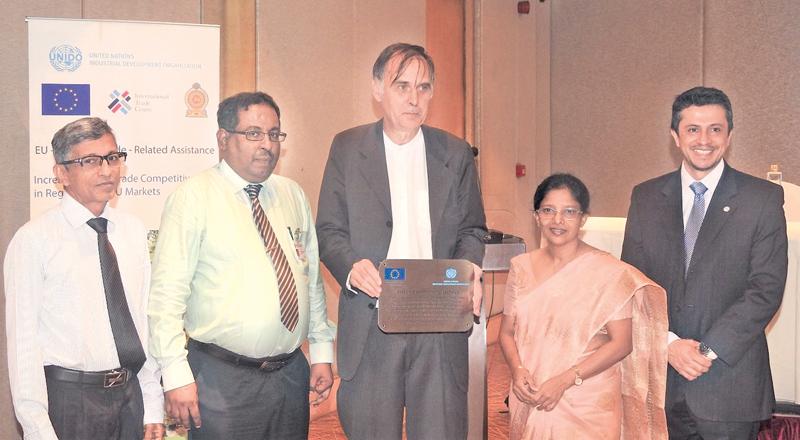
The Medical Research Institute’s (MRI) Food and Water Laboratory is now fully geared to offer credible tests to international standards, with the accreditation certificate it received recently.
“The accreditation is a milestone for the institute. The certification will validate our processes to global standards which will be recognised in other parts of the world. With a wide scope of activities, the food and water laboratory will provide the much needed impetus for economic growth while boosting the confidence level in its testing capabilities,” Director, MRI, Dr. Jayaruwan Bandara said.
The MRI has diversified into many activities including hi-tech laboratory investigations and quality control testing to become a centre of excellence. The institution received the certification - international standard ISO/IEC 17025:2005 – general requirements for competence of testing and calibration laboratories.
This is the first-time, a testing laboratory under the Ministry of Health and Indigenous Health Services has received an accreditation certificate.
“We strive to maintain and engage in continuous improvement of our activities aimed at safeguarding the people from biological hazards. We look forward to obtain accreditation from other global institutions as well. This is a step in the right direction to ensure we support the development agenda of the country,” he said.
The accreditation process was supported within the framework of the EU–Sri Lanka Trade Related Assistance program with the United Nations Industrial Development Organization (UNIDO). The EU program has contributed Rs. 1.6 billion to improve trade competitiveness in the region and EU markets.
With the accreditation, the MRI will transform to the next level and there will be structural changes. Being in compliance with international standards, the country now has a world -class globally accepted laboratory.
There are 4.6 million people suffering from food-borne diseases and 560 deaths occur annually.
UNIDO carried out a gap assessment of MRI’s testing services and identified gaps against ISO/IEC 17025:2005 and corresponding corrective action. UNIDO conducted training on all aspects of the standard and facilitated the calibration of equipment and procurement of monitoring equipment to maintain quality control and accuracy of results.
Conformity assessment builds confidence between consumers and stakeholders, specially suppliers. It offers a basis for products or services selection – products or services bearing a mark or certificate of conformity lends to consumer confidence. As a passport for international trade, conformity assessment provides a company with a competitive edge in the market. When a company assesses its products and services in accordance with relevant standards, it helps the company to adapt the latest market trends regarding quality and mitigates the costs related to product returns, buyer complaints, and loss of goodwill in local, regional and international markets.
The project supports 25 other conformity assessment bodies (CAB) and national quality infrastructure institutions, such as the Sri Lanka Accreditation Board, the Sri Lanka Standards Institute, and the Measurements Units, Standards and Services Department, in helping them achieve international recognition, particularly in expanding testing services for food safety and quality-related parameters in the food and spices sectors.
